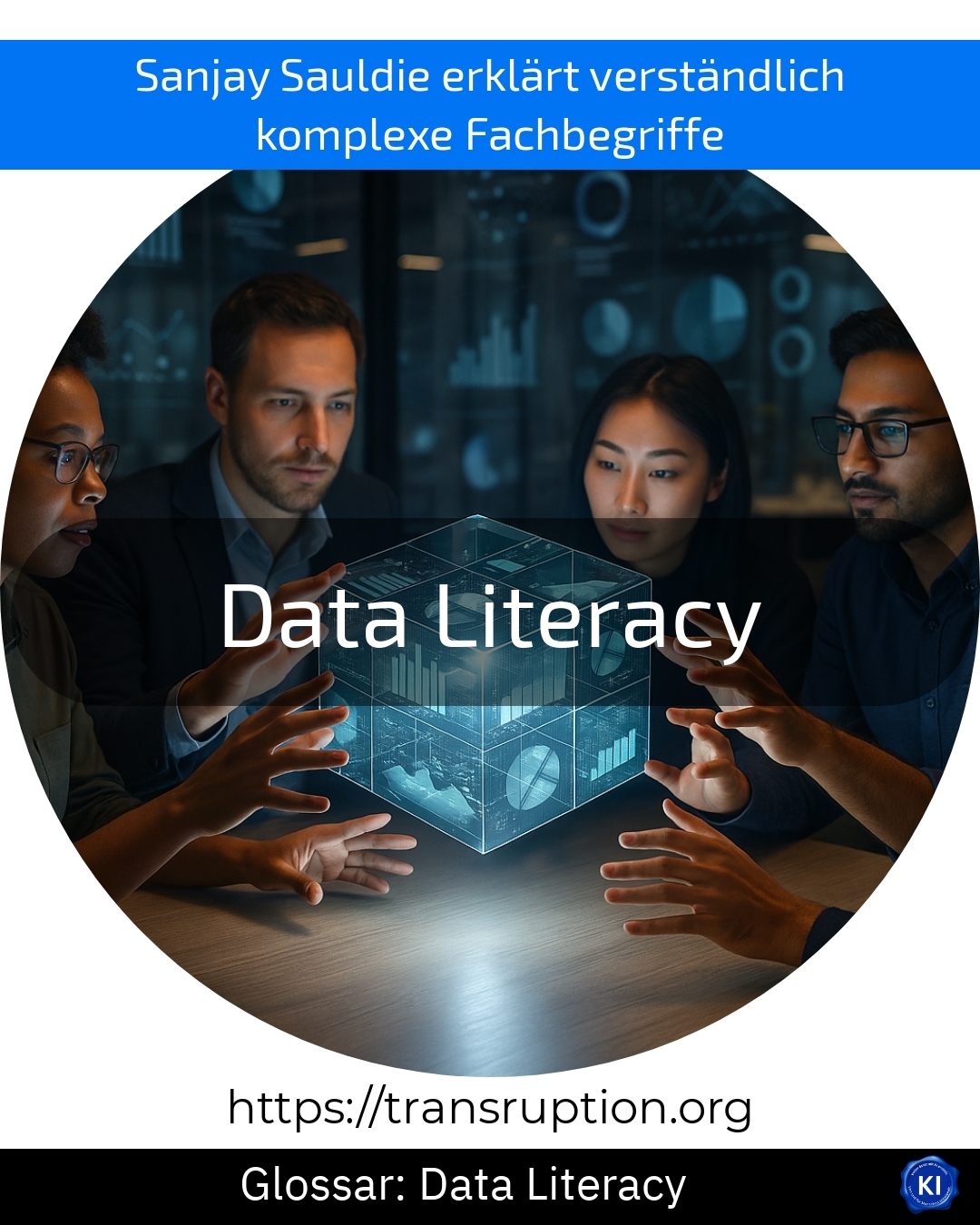Data literacy is particularly important today in the areas of big data and smart data, digital transformation and artificial intelligence. The term translates as "data literacy" and describes the ability to understand, critically evaluate and utilise data. In other words, those who are data literate can handle figures, statistics and data sources in a meaningful way.
In the digital working world, we encounter vast amounts of data every day - for example in marketing, when analysing customer behaviour, in product development or in HR management. Data literacy helps us to draw the right conclusions from data and make better decisions. Those who have mastered data literacy can recognise patterns in data, process it in an understandable way and make well-founded recommendations.
For example, a company uses artificial intelligence to collect customer data in order to improve its online offering. A team with a high level of data literacy analyses this data, recognises which products are particularly popular and suggests targeted adjustments to the product range. Without data literacy, desire and reality might drift apart - with data literacy, the company achieves demonstrably better results.















